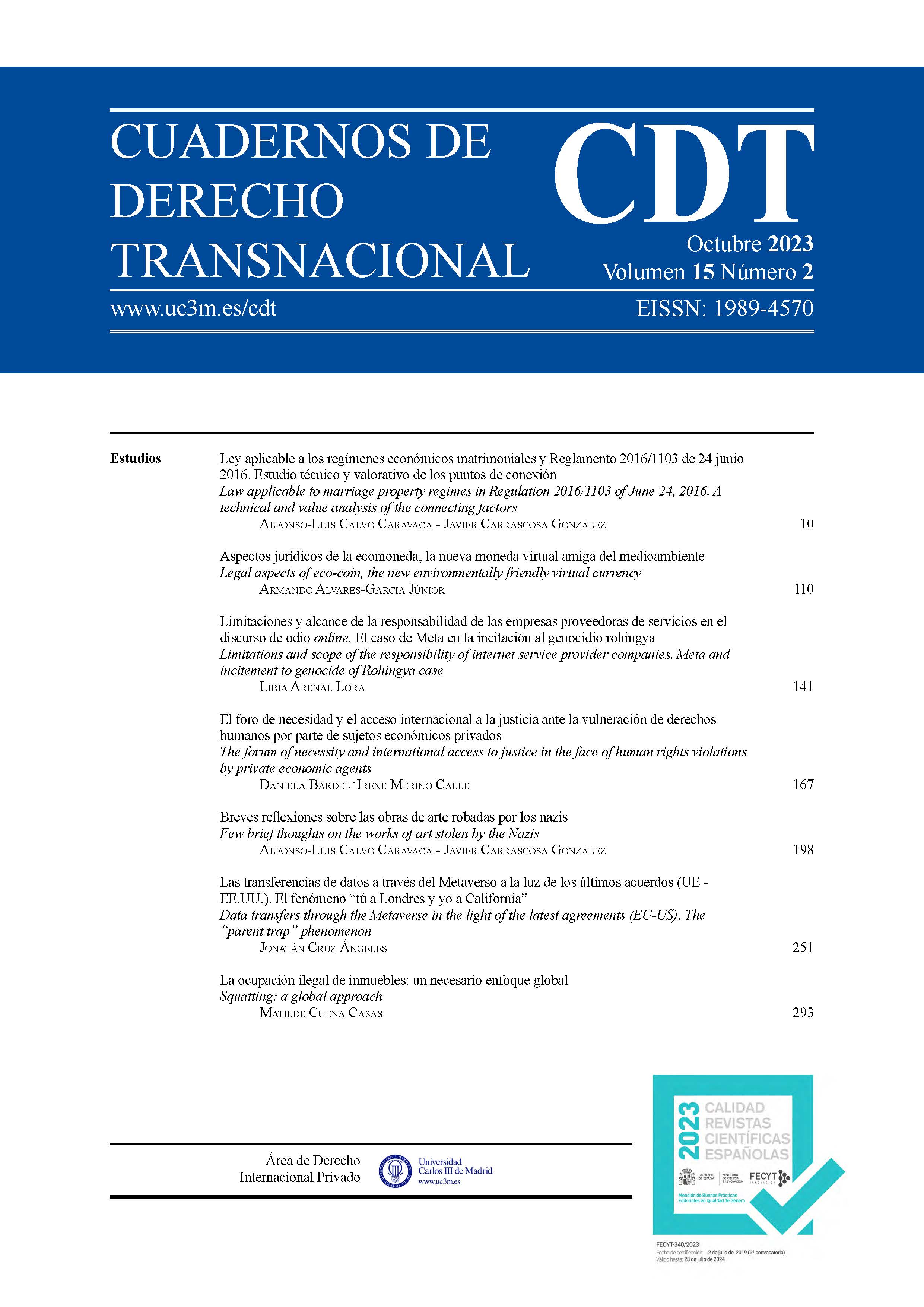Regulation as a generic form of public intervention. Regulation in the digital society (Transformations in public and private law)
Abstract
The increasing digitalization of today’s society is giving rise to new problems to which the law has to provide answers; the traditional syllogistic techniques in which it is sufficient to apply a clear and precise rule to more or less simple situations described in the rule are no longer useful. This leads to the application of regulatory techniques used, until now, basically in the field of economics. The aim is to protect the rights of individuals in new situations in which digital technologies make it more difficult to predetermine in the rules what conduct is permitted or prohibited. It also seeks to protect democracy itself and the functioning of an economic system in which free and fair competition is an essential element.
The first regulatory legal responses to the inevitable process of digitalization of today’s society are to be found in the field of data protection; but these are being followed by those relating to artificial intelligence or the so-called neuro-rights, among others. This extension of regulatory techniques into areas other than the economic sphere implies a transformation of the law.
Transformation of public law first of all by entrusting independent administrative authorities with the supervision, monitoring and control of respect for rules and principles in matters such as freedom of expression and opinion, information, privacy, etc., without forgetting the final frontiers of a posible transparency of our behavior and feelings based on access to the brain’s neuronal system. But this also affects private and commercial law insofar as aspects such as identity, name, inheritance, advertising or the marketing of goods and services are affected by the monopolistic possession of data.
The interference of the new independent administrative authorities is determined especially by the increasingly intense appeal and referral - from the rules and principles of law - to sciences, knowledge or practices alien (aliunde) to the law, although metabolized by it. It is this alienness that requires recourse to administrative agencies made up not only of jurists, but also of experts in other sciences or knowledge, who will end up paving the way and conditioning the answers that judges and magistrates will finally give in the processes and conflicts between parties that are submitted to their knowledge.




